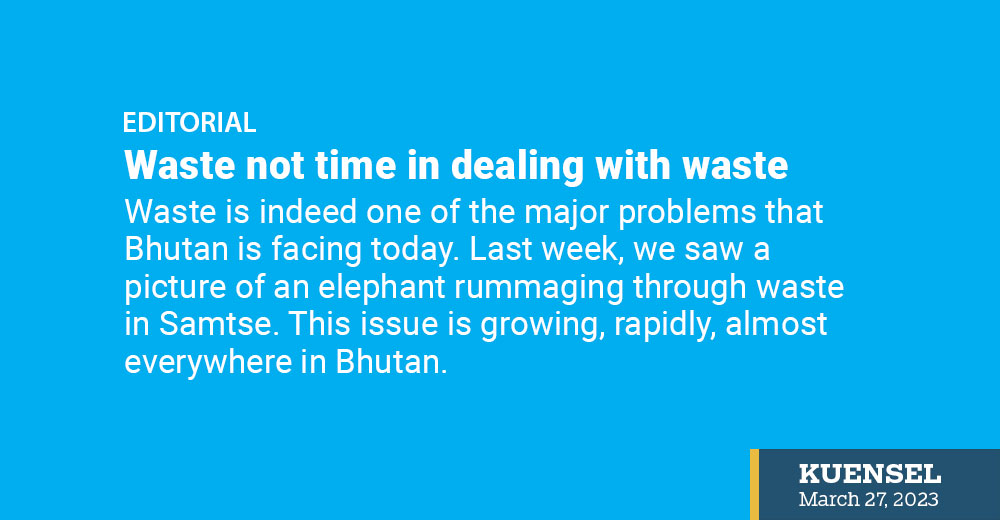Waste is indeed one of the major problems that Bhutan is facing today. Last week, we saw a picture of an elephant rummaging through waste in Samtse. This issue is growing, rapidly, almost everywhere in Bhutan.
From collection to disposal, the issue of waste management has become an overwhelming challenge for the country. For a nation that prides itself on being a Himalayan paradise, it is sad to see the amount of waste accumulating in the streets, rivers, and even in our forests. It is high time for the Bhutanese government and its citizens to work together to address this issue.
One of the primary reasons for the increase in waste generation in the country is the rise in population and economic development. With the increased economic growth, people have become more consumer-oriented, leading to an increase in plastic packaging, non-biodegradable products, and electronic gadgets. Moreover, waste collection and management have not been able to keep up with the pace of growth, leading to an accumulation of waste in public places.
The situation is even worse in rural areas, where there is an acute shortage of waste management facilities. In many parts of the country, people still practice open burning of waste or dumping it into nearby rivers and streams. This has led to severe environmental degradation, air pollution, and contamination of water sources, harming the health and well-being of citizens.
Therefore, it is essential for the government to take a proactive approach to address the waste problem. The government should invest in the development of waste management infrastructure, such as landfills and recycling plants, across the country. Also, innovative initiatives, such as micro-composting, zero-waste models, and community-based waste management, should be promoted to reduce waste generation and promote sustainable living practices.
Citizens also have a pivotal role to play in waste management. Bhutanese citizens should be encouraged to adopt habits such as reducing, reusing, and recycling. Simple actions like carrying a reusable bag while shopping, segregating waste at the source, and composting kitchen waste can go a long way towards reducing waste generation in the country. Moreover, littering should be strictly prohibited, and heavy penalties and fines should be imposed on litterbugs.
Even though waste management is a challenging problem, Bhutan has the potential to overcome it. However, this requires a collective effort from the government, citizens, and private sectors. We must all work together to create a cleaner and healthier environment for ourselves and future generations. The time to act is now.
It is high time for the Bhutanese government and its citizens to take responsibility for proper waste management. We must adopt sustainable living practices and work together to reduce waste generation, promote recycling and encourage greener lifestyles. Let us all strive towards a cleaner and healthier Bhutan.


